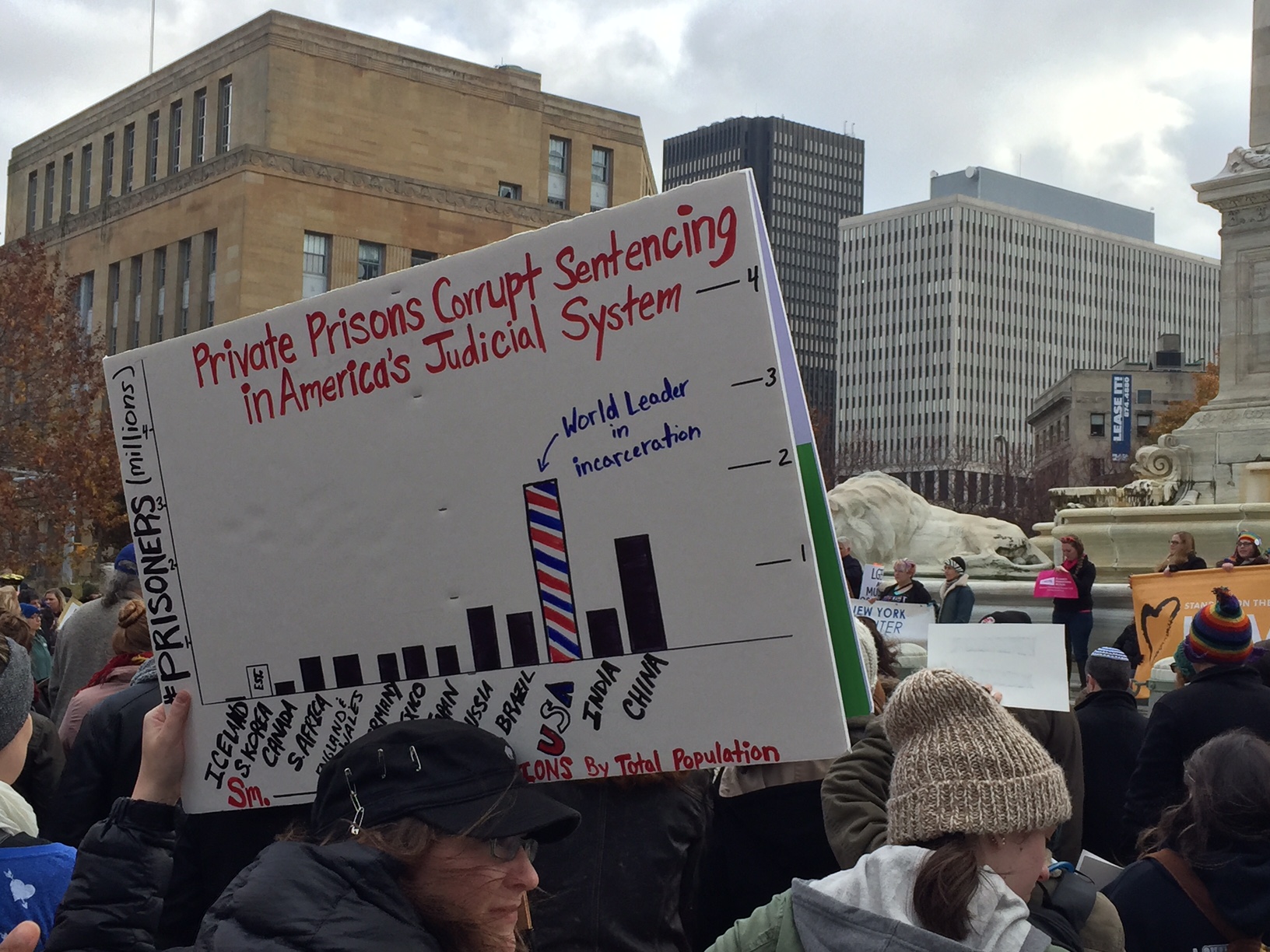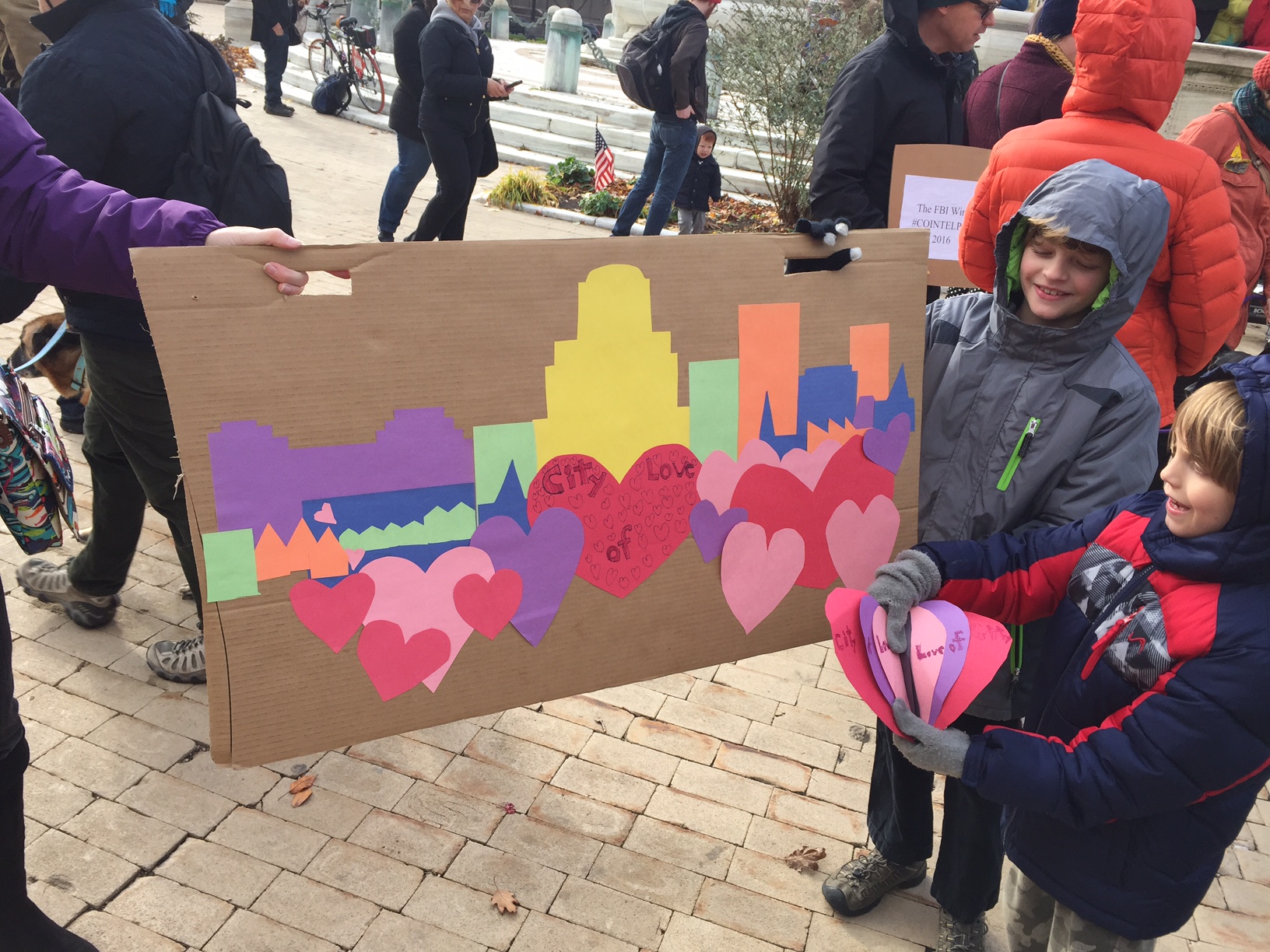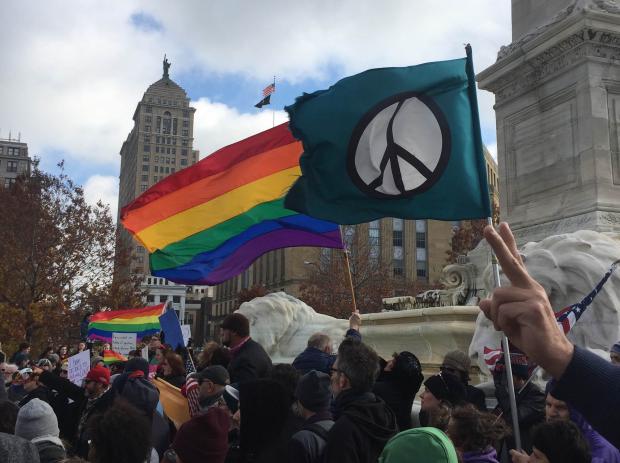A college friend of mine once recalled to me watching a Fourth of July fireworks display as a child. He was raised Orthodox Jewish in New Jersey; his father was a physician who was born in the United States and was, to my recollection, a staunch political conservative. Under the warlike lights and sounds of Independence Day, his father told him, “Remember, this will never be your country. This country will never accept you.”
My father was the child of a Holocaust survivor and a first-generation immigrant from Sokolivka, Ukraine. My grandmother’s people escaped pogroms and were able to set up a trash and refuse collection business, starting with pushcarts, as the story goes. My grandfather, speaking little English, landed as a bakery distributor, a line of work one of my uncles is still in. As a proud liberal arts graduate, I know that the American dream is mostly bunk. Still, even as anecdote or myth, it’s powerful enough to define our identity, our sense of place. My family found safety and modest prosperity in America. I never understood my friend’s story until this week. What I felt on Wednesday was an awakening of that feeling. My inner alien. It’s something that I’m sure many folks already marginalized by the country’s machine-like progression, running on the fumes of the American dream, have felt for years. For so long, in fact, that they may be desensitized to just how violently our liberal democracy has failed them. I felt on Wednesday that I no longer belonged in my own country, that my country would no longer accept me.
A lot of us feel like the casino bus that is American pluralism has come to screeching halt, and we’ve been tossed out before reaching Atlantic City by the architect of that city’s doom, the single most dangerous man in history to assume the White House.
It was chilling to consider, gathered with around 1,000 people in Niagara Square on Sunday for the Humanity over Oppression rally, what impact such a president could have. People held signs, carried pride flags. Children were everywhere. Looming to our north was the Jackson federal court house, which may come under the influence of Rudy Giuliani, the architect of stop-and-frisk. To the northwest, up the radial Niagara Street artery: the FBI field office, whose inglorious intervention in this election we still know too little about. To our south, Buffalo City Court, where citizens encumbered by an emboldened police force that already disproportionately targets minorities will groom another generation into the culture of legal entanglements. To our east, the former Dillon Court House, soon to be a new palace of security for the Buffalo Police, if the federal funding materializes. From where we stood, we could count the individual constitutional rights and freedoms and point to where they would be violated, if rhetoric becomes policy.

For the last eight years in Buffalo, we’ve had a Democratic mayor, governor, and president and we still have city where four out every five people arrested for marijuana are black, where police set up constitutionally problematic checkpoints in black neighborhoods, and where the police routinely fail to solve homicides. Early Wednesday morning, the chances for any of this improving was dealt a massive blow. From what The Public’s editor Geoff Kelly and I saw, not a single elected official—state or county or local—bothered to show up to the rally. We’ve seen a dramatic increase in reports of hate crimes locally and throughout the nation, yet not a single elected official decided to show up and denounce them and offer the community support, and to encourage witnesses of hate crimes to report them.
After the Pulse nightclub shootings in Orlando, some members of the LGBTQ community were disappointed that so many electeds—who in Western New York are almost exclusively heterosexual males—hogged time at the microphone. At Sunday’s rally, their complete absence was as conspicuous as the number of same-sex couples who stood holding hands and embracing as if for the last time. Organizers had tried to set up a generator to supply a PA system, but it was denied by the city on site. The 1,000 people instead strained to hear the voices of speakers through a megaphone that curled into the wind like smoke.
Judging from the number of people I’ve talked to who haven’t gone a day without crying for fear of how this president may usher in a new era of bigoted violence and ecocidal mania, many of us didn’t see this coming. Yet around the world and in our own towns and cities, life is a constant battle for survival. Last Wednesday, those who took that struggle for granted got a slap in the face.
Twenty-six states will mirror our federal government in January, with Republicans controlling the legislative and executive branches. Only six states have such a Democratic majority. New York, of course, is not one of them. Democrats have held the presidency for 16 out of the last 24 years, and Hillary Clinton won the popular vote by a comfortable margin, yet somehow, here we are in a divided country that suddenly sorely lacks any kind of ideological balance.
Sunday’s rally was a heartening exercise, but it’s meaningless without consequences. I saw an inspiring level of participation. Educators, business owners, social workers, artists—the fabric of what binds Buffalo together. If we’re to be aliens, let’s be aliens right here together.
It’s clear that we need new leadership and a new level of political involvement. We need to be reaching out to the vulnerable in our own communities and letting them know they are not alone. We need to attend community meetings with police and other city and town officials to make sure our cities and towns are prepared to respond to hate crimes and prepared to respond to the needs of the community and not the needs of a burgeoning police state. We need our progressive organizations, our community groups, and our labor organizations to begin grooming and fielding candidates for public office, especially women and minorities. And we need to make sure that our electeds and their machine politics—the same machine that tripped over each itself to blindly endorse Hillary Clinton in the primary—know that we expect them to fight for our country’s soul, starting with whatever office they hold.
It’s either that, or getting used to telling children that this is not their country.



